Archives
-
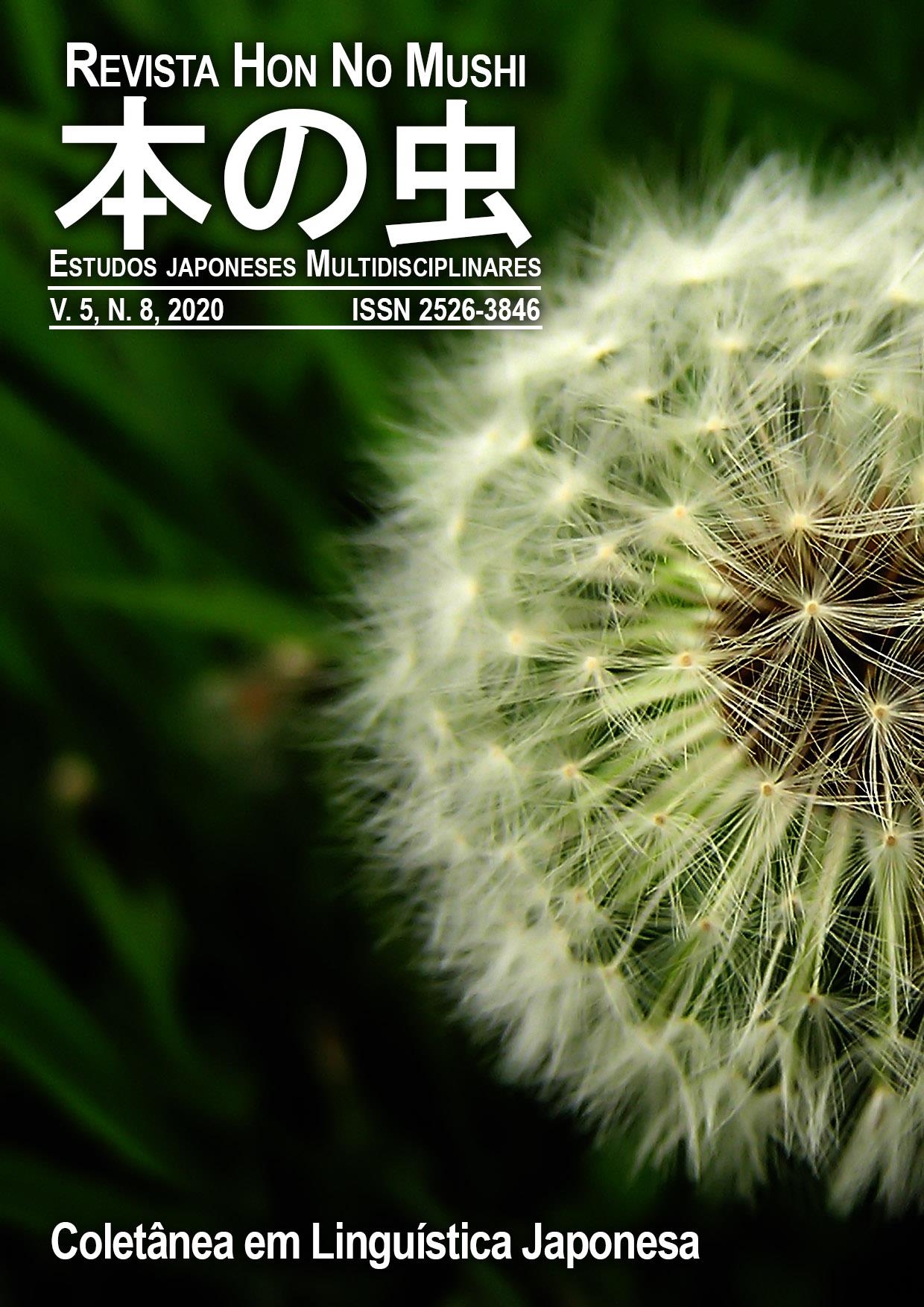
Hon No Mushi - Estudos Multidisciplinares Japoneses - Coletânea em Linguística Japonesa
Vol. 5 No. 8 (2020)O volume 5, número 8 da Revista Hon No Mushi - Estudos Multidisciplinares Japoneses é o resultado de um convite à comunidade acadêmica para a publicação de pesquisas que tenham como alvo diferentes tópicos em linguística japonesa. Afinal, a língua japonesa está entre as 10 línguas mais faladas no mundo, com aproximadamente 128 milhões de falantes. Muitas das pessoas que se comunicam em língua japonesa estão no Brasil, destino de milhares de emigrantes do arquipélago durante o século passado. No entanto, há várias lacunas no nosso conhecimento sobre a língua, como a relação do japonês com as outras línguas naturais faladas ao redor do globo, entre outros pontos. Esta revista busca portanto preencher algumas dessas lacunas. Da comparações da língua japonesa com o português e o coreano aos artigos da seção livre sobre literatura e desbravamento da Amazônia, esperamos que os artigos aqui presentes sejam de grande valia para estudiosos da área de estudos japoneses." -
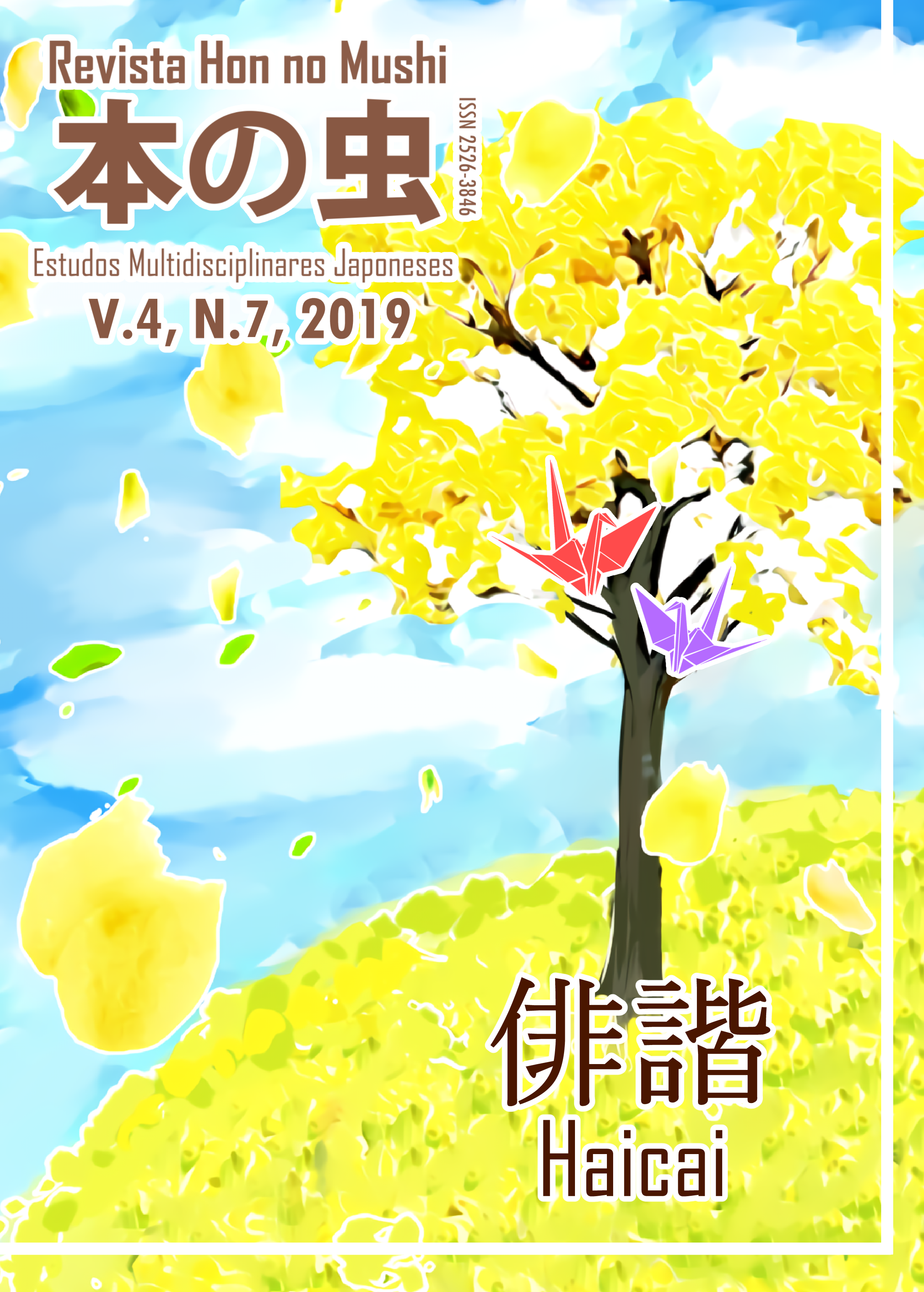
Hon No Mushi - Estudos Multidisciplinares Japoneses - Haikai ou Haicai?
Vol. 4 No. 7 (2019)Hon no Mushi Journal - Japanese Multidisciplinary Studies, an important national journal, Qualis B3, is a critical and reflective space that dialogues with diverse scientific studies, as well as new knowledge in the fields of Japanese literature, teaching, language and culture. In this perspective, Volume 4, Number 7, coordinated by Professors Cacio José Ferreira and Rodrygo Yoshiyuki Tanaka, from the Federal University of Amazonas, gives significant prominence to haiku (俳句), a unique thread in the universe of Japanese poetry and haiku, a Brazilian production that incorporates the elements of traditional Japanese poetics.
Mirror of the tanka, the conciseness of the haiku intensifies and is based on the writing of Matsuo Bashō (1644-1694), achieving worldwide success in modernity. According to Tsuneyuki Ooi, in Haiku tsukuru tanoshimu happyou suru, at the height of Matsuo Bashô and Issa Kobayashi, the haiku, known as hokku (発句) was called haikai (俳諧). However, in the Meiji era, it was named haiku. The haikai thread comes from the renga (連歌).
In this perspective, the works published here comprise singular analyzes by specialists and researchers, both students and teachers, discussing around haiku. The articles expand the debates that already exist around Japanese poetry and scientific research. Thus, the publication of number 7 is called the Thematic Section: Haikai . However, in addition to articles that address aspects of Japanese poetry, there are other publications, covering free themes and translation.
-
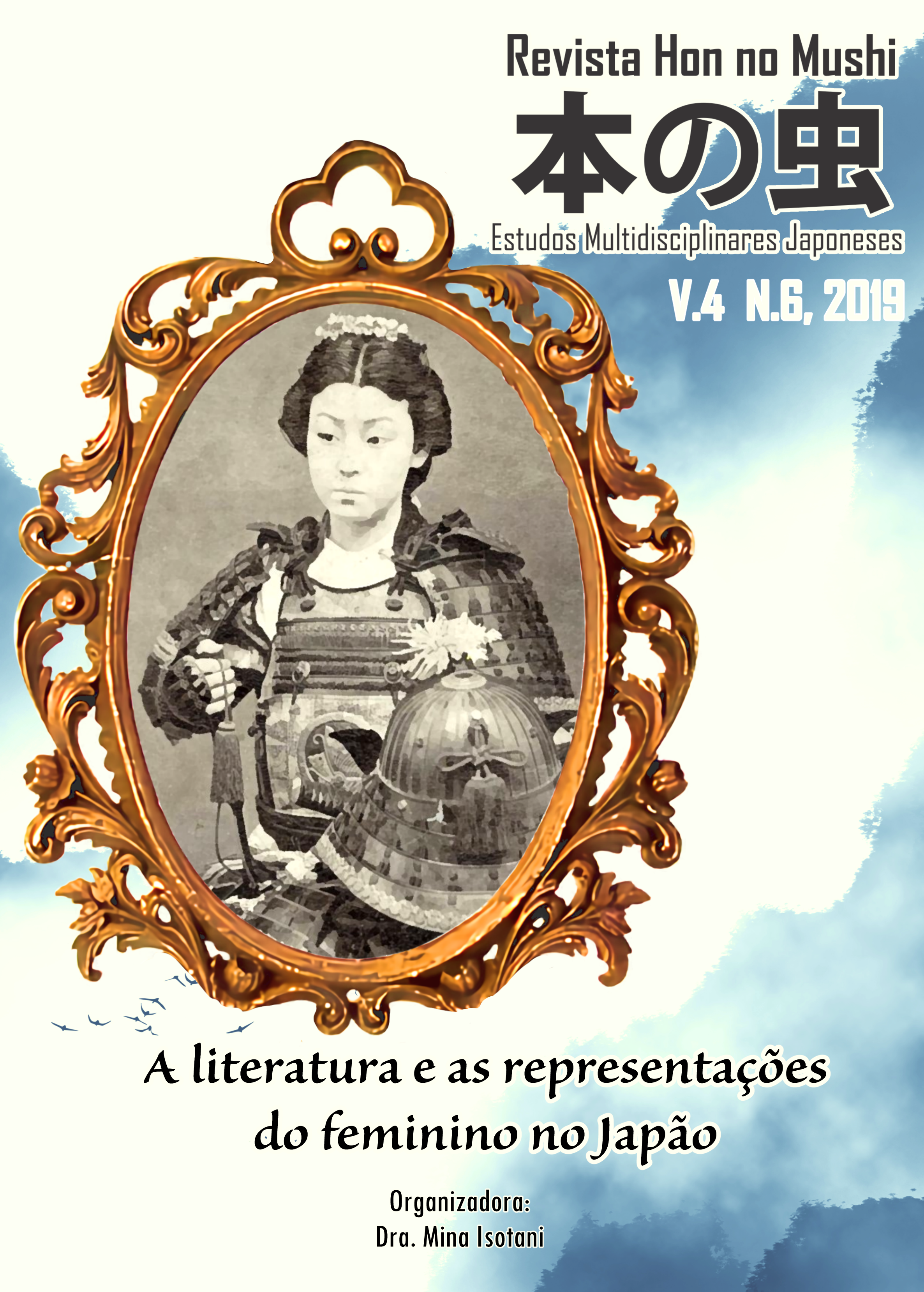
Hon No Mushi - Estudos Multidisciplinares Japoneses - A literatura e as representações do feminino no Japão
Vol. 4 No. 6 (2019)A escrita feminina e as representações do feminino na Literatura Japonesa ainda são assuntos pouco abordados na área de Estudos Japoneses. Assim, a Revista Hon no Mushi Volume 04, número 06 dedica esta edição a essa temática.
Vozes de Hiratsuka Riachô e de Higuchi Ichiyô como precursoras do feminismo no Japão do século XX e as protagonistas de Tanizaki Junichirô e Haruki Murakami são exemplos de que as possibilidades de reflexão ainda não foram devidamente exploradas e necessitam de espaço para que novos pesquisadores adentrem nessa área de pesquisa.
Na perspectiva dos Estudos Culturais, dos Estudos de Gênero e da teoria da literatura, podemos pensar a função social do texto, o que nos traz informações quanto à estrutura social japonesa, os posicionamentos do feminino e questionamentos político-social da escrita feminina. Analisar esse aspectos que transcendem o texto enriquecem a área de Estudos Japoneses no Brasil.
Assim, esta edição traz algumas reflexões sobre a representação do feminino e sobre a escrita feminina na literatura japonesa, a fim de abrir um espaço contínuo de discussão e de pesquisa sobre essa temática.
-
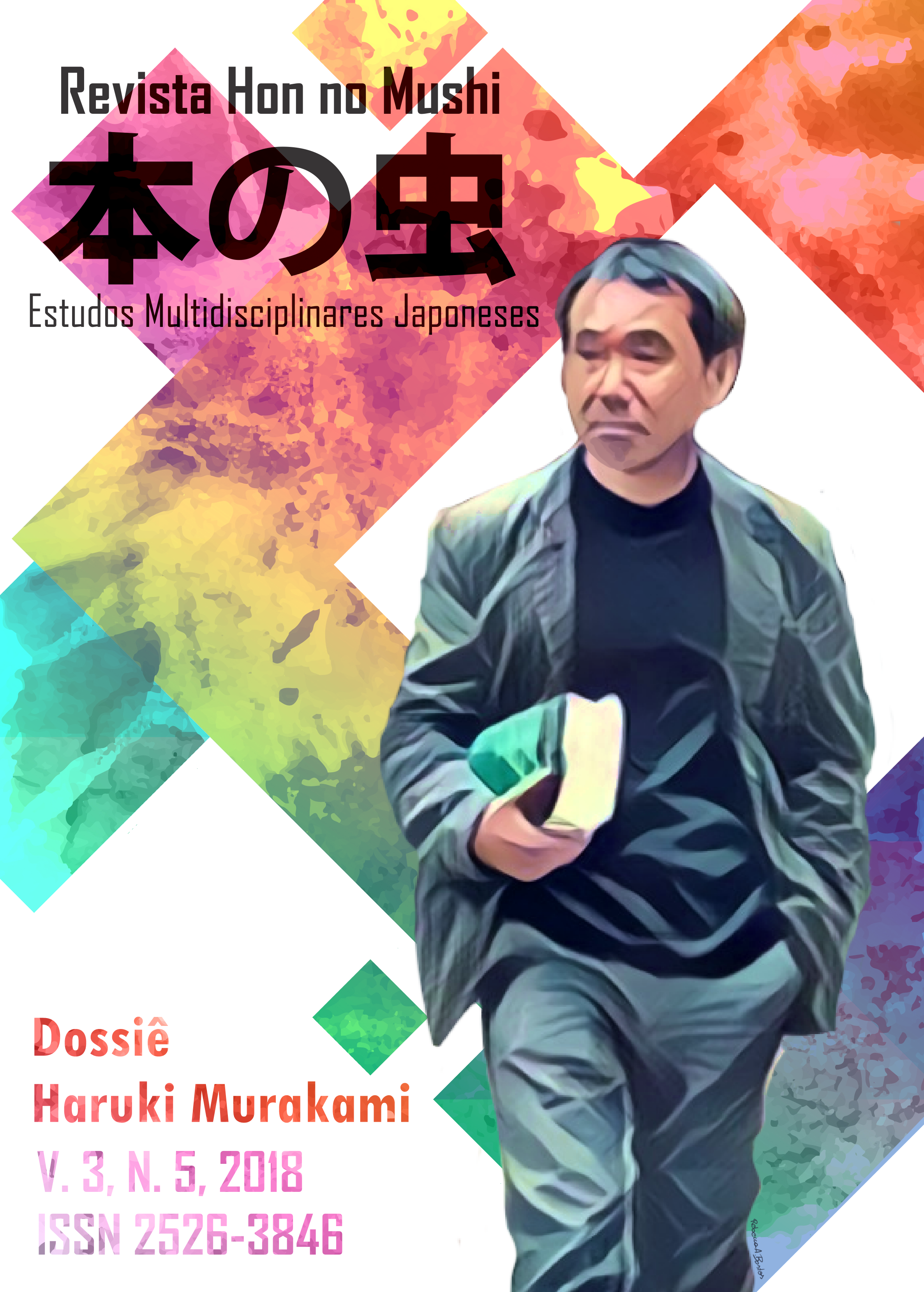
Hon No Mushi - Japanese Multidisciplinary Studies - Haruki Murakami Dossier
Vol. 3 No. 5 (2018)Diffused since the 80's of the twentieth century, the fictional prose of Haruki Murakami appropriates postmodern elements, integrating the multiple textualities in which the literary bed unfolds. In his works, the construction of reality is elaborated from the double gear that emerges from the unconscious of his characters. By this modus operandi, in his poetic prose, the nuance of the word, for example, does not show the sharpness of the color that reveals the world, but ends up emphasizing and printing a force that installs itself in the plot. The consciousness of the real will only be noticed after traversing the dual paths woven by Murakami, especially under the decentralization of space, always in an orderly way.
The writing of Murakami is configured like a magnifying glass that increases the vision of the real, contributing peripheral details not contemplated by the common gaze. Then, in the transformative and inventive force of the literary making, which drives and moves the universe of writing - after all, they are the word and its time: the voice that clarifies, humanizes the unconscious and connects emotions, not simply the theme which is presented or preserved, but mainly by the reach of language, which moves to the frontiers of narrative space and establishes itself as a literary discourse.
Concerned with mediation and writing, the writer contests and breaks standards, constituting in the literary soil the harmonious confluence of action, characters, going and coming, thus instituting the character of a particular sector of society. And the social sector highlighted by Murakami is the peripheral. Part of the border to the center, that is, prioritizes the details, which go unnoticed to a more inattentive. The seemingly "loose" words are balanced in the narrative and become literary, converging in time and space, not accepting the imposition of a single truth, but leading the text to the framing of the world under multiple points of view. In this perspective, the refraction of Murakami's literature is taken by the awareness of the force of the word, presupposing descriptive contours as a kind of envelope of secrets. Thus, fissures are opened in the Murakamian narrative, whose imaginary ruptures direct and construct a new possibility for the gear of the text. Or simply illuminate the scene surrounding the character. In the recent creation, it breeds, from the unconscious, the inner glimpse that explores the surroundings.
Therefore, the Hon Mushi Journal - Volume 3, Issue 5, 2018, covers the universe of Haruki Murakami, the translation of his works, the writing and the various and varied dialogues peculiar to literary studies, which are spread by the murakamian territories.
-
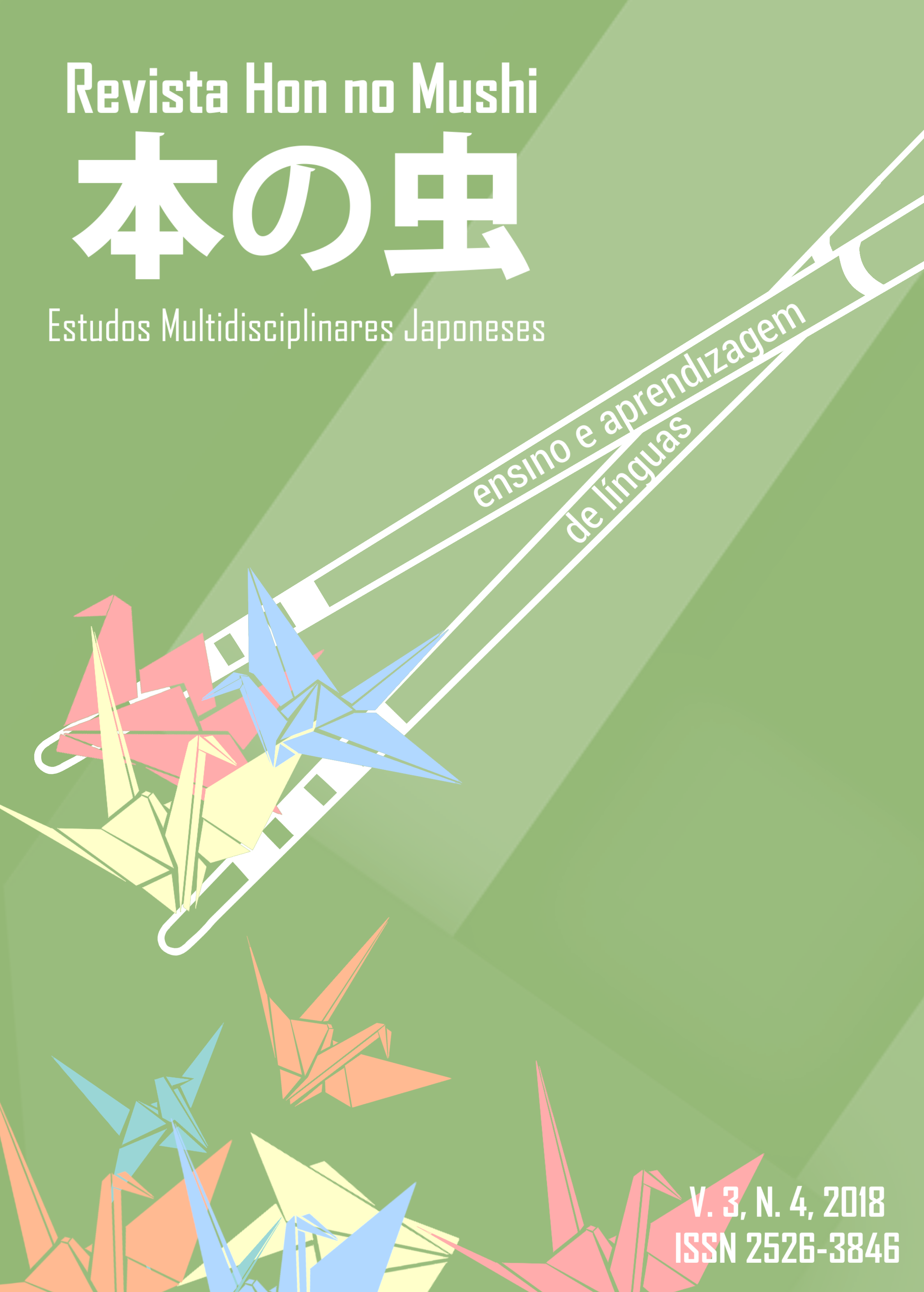
Hon No Mushi - Estudos Multidisciplinares Japoneses
Vol. 3 No. 4 (2018)A Revista Hon no Mushi – Estudos Multidisciplinares Japoneses, publicação do Curso de Letras – Língua e Literatura Japonesa da Universidade Federal do Amazonas (UFAM), configura-se em um espaço crítico e reflexivo voltado à promoção e expansão da interlocução de ideias, culturas, bem como a convergência de estudos científicos diversos e novos conhecimentos nos campos da literatura, da língua e da cultura japonesas e do ensino de línguas (Francês, Inglês, Português, Alemão, Japonês e etc.), também em perspectiva estrangeira. Assim, acolhe os desdobramentos revelados nas mais distintas formas de expressão científica, constituindo-se em verdadeiro e legítimo convite a diferentes inscrições a partir da fecunda multiplicidade de olhares. Para o volume 3 do número 4, o tema a ser abordado versará sobre o Ensino e Aprendizagem de Línguas, buscando reflexões, críticas, teorias ou outras posições que discutam e problematizem questões de ensino e de aprendizagem. Dossiê coordenado pelos Professores Eduardo Dias da Silva, doutorando em Literatura pela Universidade de Brasília e Renato de Oliveira Dering, doutorando em Letras e Linguística pela Universidade Federal de Goiás.
-
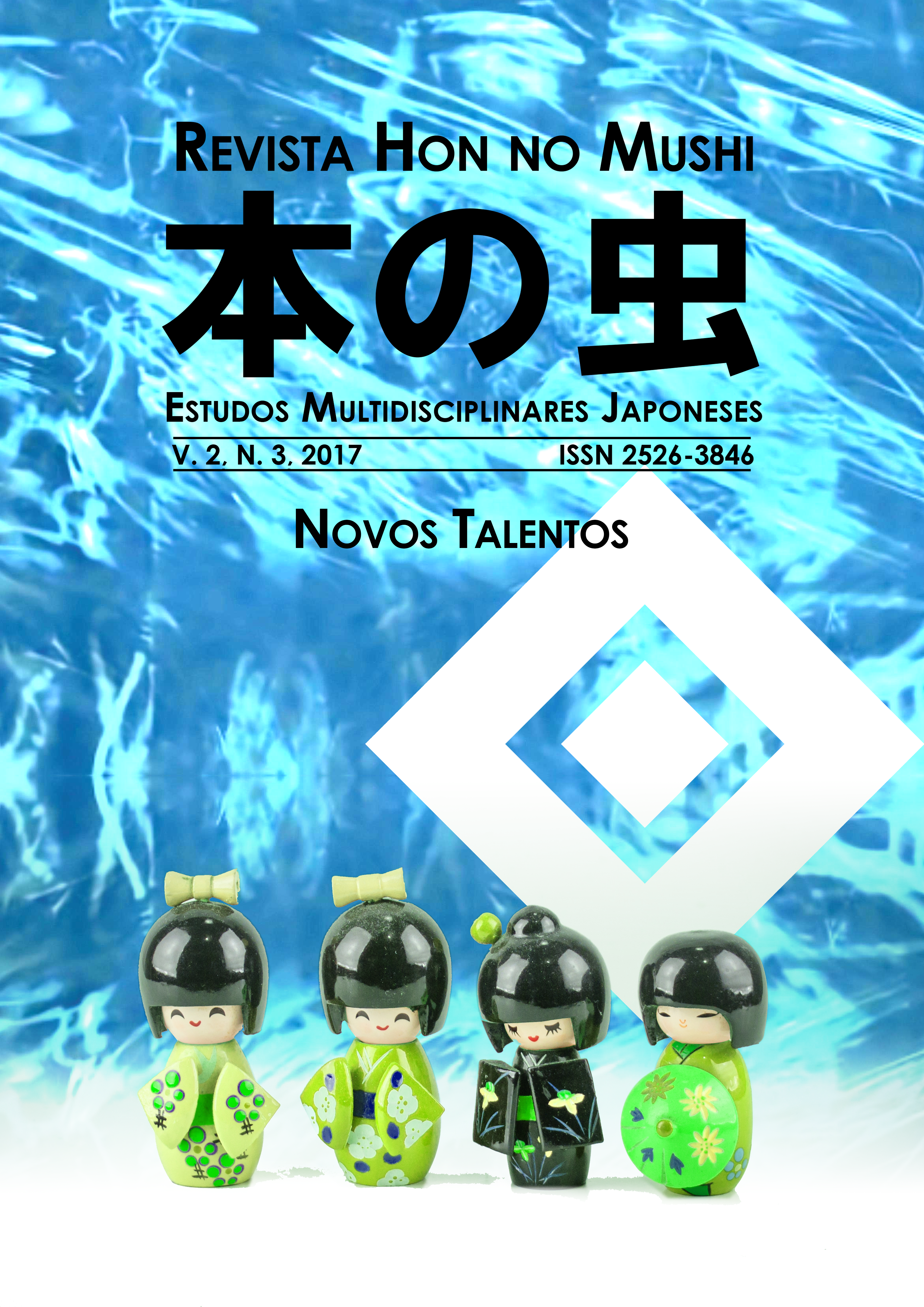
Hon No Mushi - Multidisciplinary Japanese Studies
Vol. 2 No. 3 (2017)The third issue of the Hon No Mushi journal, titled “New Talents”, brings to the general public contributions, such as articles and translations of works by renowned Japanese writers, by upcoming experts in the field of Japanese studies, focusing on literature, history and language education. Hopefully, this issue can become not just an outlet for new researchers to showcase their work, but also an incentive for many generations to come.
-
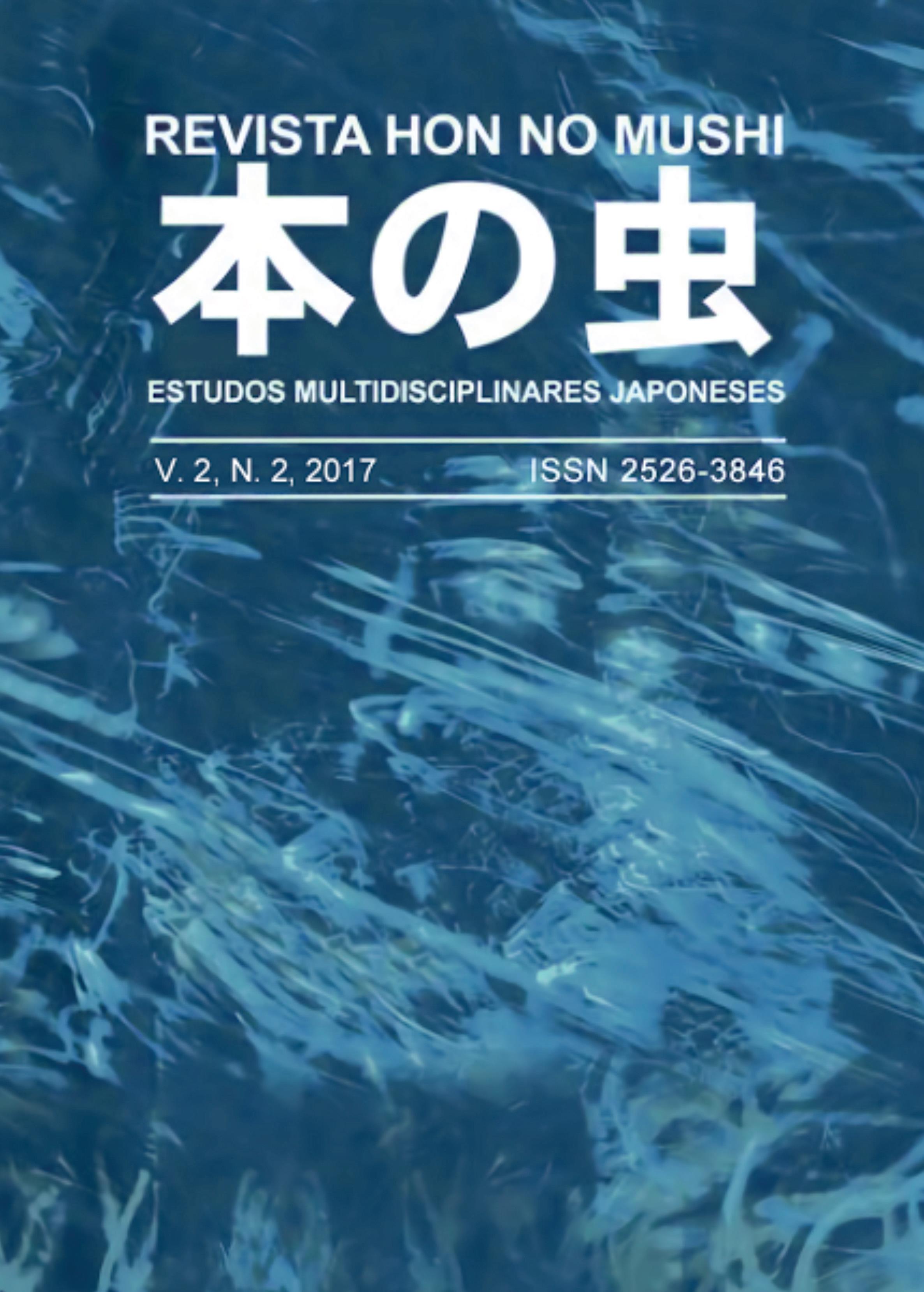
Hon no Mushi - Estudos Multidisciplinares Japoneses
Vol. 2 No. 2 (2017)The journal Hon no Mushi - Multidisciplinary Japanese Studies, born of the research group led by professors Cacio José Ferreira and Ernesto Atsushi Sambuichi (UFAM), continues seeking to achieve the goal for which it was originally created: the exchange of ideas in the study of topics related to Japan, in the most varied areas of knowledge. In this second issue, the selected papers cover topics on Japanese Literature (with translations of poems from the Shinkokinshū, among other contributions), manga, translation, and even cultural practices of Japanese immigrants.
-
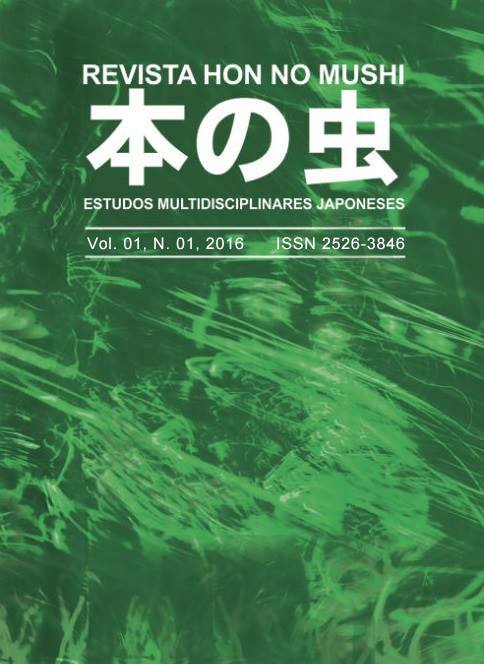
HON NO MUSHI - Estudos Multidisciplinares Japoneses
Vol. 1 No. 1 (2016)Conjugado ao espaço crítico e reflexivo voltado à promoção e expansão da interlocução de ideias, culturas, bem como a convergência de estudos científicos diversos e novos conhecimentos nos campos da literatura, da língua e da cultura japonesas, o grupo de pesquisa liderado pelos professores Cacio José Ferreira e Ernesto Atsushi Sambuichi, criado em 2013, também assumiu como iniciativa a indução e a divulgação das análises relacionadas. Os artigos reunidos no volume 01 da Revista Hon no Mushi trazem ainda informações atualizadas sobre a história e a repercussão social e econômica da migração japonesa para Amazônia no século XX e o consequente desenvolvimento da região.
Os trabalhos aqui publicados compreendem providenciais e singulares análises empreendidas por especialistas e pesquisadores, tanto discentes quanto docentes, em torno dos Estudos Japoneses, contribuindo na ampliação e no aprofundamento do saber e da pesquisa científica, fomentando, desse modo, os aspectos associados ao encontro dos povos, à complexidade da assimilação das diferenças, às confluências de linguagens e às instâncias sociais e filosóficas que atravessam a história da cultura e do conhecimento.













